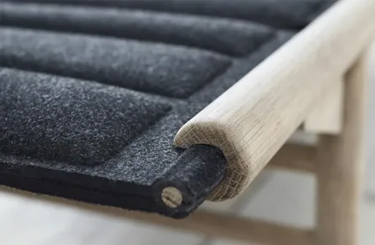Different Methods of Weather Stripping for Windows You Should Consider
Types of Window Weather Stripping
Weather stripping is one of the most effective methods to enhance energy efficiency in your home. It acts as a sealant around windows and doors, preventing drafts, reducing energy costs, and improving overall comfort by minimizing air leakage. There are various types of weather stripping materials and methods, each with unique features suited for different applications. This article outlines some common types of window weather stripping to help you make an informed choice about the best option for your home.
1. V-Seal Weather Stripping (V-strip)
V-seal weather stripping, also known as V-strip, is a flexible, durable option designed to fold over itself in a V shape. It is typically made from vinyl, plastic, or metal and can be adhered directly to the window frame or the sash. This type of strip is particularly effective at sealing the vertical edges of window sashes, keeping out drafts and improving the insulation of your windows. V-strips are easy to install, making them a popular choice for DIY homeowners.
2. Adhesive-Backed Foam Tape
This is one of the simplest and most affordable options for weather stripping. Adhesive-backed foam tape comes in various thicknesses and is made of foam or rubber. Its flexibility allows it to conform to different shapes, making it suitable for irregular gaps around windows. The foam tape adheres easily to the window frame and can be cut to length, but it may need to be replaced periodically, as exposure to weather elements can degrade its effectiveness over time.
Felt weather stripping is a traditional option made from compressed fibers and is often used in combination with other materials for insulation. It comes in rolls and is typically secured with adhesive or nails. Felt does an adequate job at blocking drafts, but it is less durable than other types and can wear out more quickly, making it better suited for seasonal use or temporary applications.
types of window weather stripping

4. Tubular Rubber or Vinyl Gaskets
Tubular gaskets are excellent for sealing larger gaps and are often used in casement windows. Made from high-quality vinyl or rubber, these strips can last for many years and provide superior insulation. They come in various shapes and sizes, ensuring that homeowners can find the right option for their specific window style. While they might be more expensive than foam tape or felt, their longevity and effectiveness often make them a worthwhile investment.
5. Magnetic Weather Stripping
For windows that open outward, magnetic weather stripping offers a unique sealing solution. Similar to refrigerator doors, this type involves magnets embedded within the strips, allowing for a secure, airtight seal when the window is closed. Magnetic weather stripping is easy to install and provides an excellent barrier against air infiltration, making it ideal for those looking to improve the energy efficiency of their homes.
6. Pressure-Sensitive Weather Stripping
Pressure-sensitive weather stripping is designed to be compressed when the window closes, creating a tight seal. This type is particularly effective for different gap sizes and works well on double-hung and sliding windows. It typically involves a combination of materials, including foam or rubber, and can last several seasons with proper maintenance.
Conclusion
Choosing the right type of weather stripping for your windows can significantly impact your home’s energy efficiency, comfort, and overall climate control. Each option has its own set of benefits and drawbacks, so consider the specific needs of your windows and your budget when making your choice. Installing appropriate weather stripping not only reduces your energy bills but also prolongs the lifespan of your windows, proving to be a valuable investment in your home’s comfort.
-
Silicone Seal Strip: The Ultimate Solution for Your Sealing NeedNewsNov.01,2024
-
Keep the Heat: The Importance of Seal for Oven DoorsNewsNov.01,2024
-
Essential Guide to Corner Protectors for Your FurnitureNewsNov.01,2024
-
Enhance Your Home with Silicone SolutionsNewsNov.01,2024
-
Efficient Maintenance of Melamine Sealing StripsNewsNov.01,2024
-
Comparison of Different Edge Sealing ProcessesNewsNov.01,2024
-
Types of Door Bottom Seal Strips and Their Best UsesNewsOct.25,2024